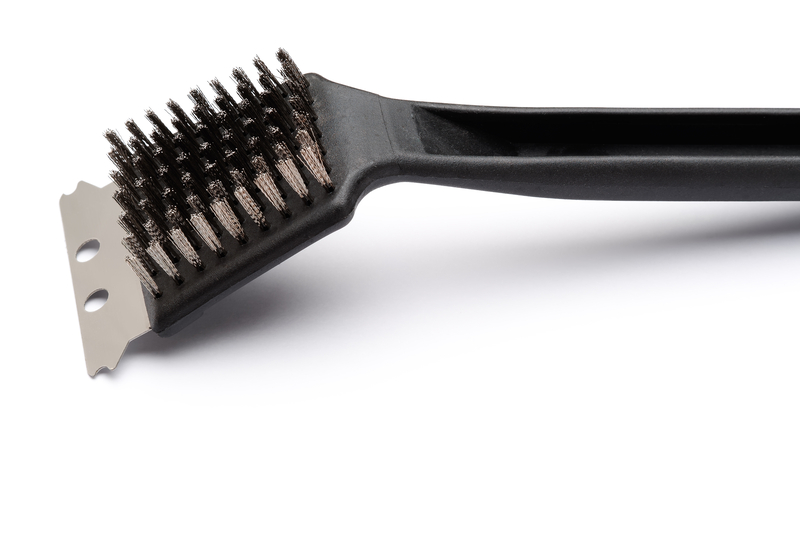Say Goodbye to Musty Scents
Posted on 22/09/2025
Say Goodbye to Musty Scents: Your Comprehensive Guide
Do you ever enter a room and immediately detect an unpleasant, musty odor? You're not alone. These unwanted smells can turn even the cleanest space into a stifling, uninviting place. If you're eager to say goodbye to musty scents for good, you're in the right place. This comprehensive, SEO-optimized guide will walk you through understanding, eliminating, and preventing those pervasive musty smells that seem to linger in homes, basements, closets, and even cars.

Understanding What Causes Musty Odors
Before you can truly banish musty odors, it's important to understand their origins. Musty scents typically result from mold and mildew growth, inadequate ventilation, or old materials trapping moisture. Here are a few common sources:
- Humidity: Excess moisture in the air feeds mold and mildew colonies.
- Leaky Pipes or Roofs: Water intrusion into walls, floors, or ceilings.
- Poor Ventilation: Spaces that lack airflow allow musty odors to develop and persist.
- Carpet and Upholstery: Soft furnishings absorb and trap dampness.
- Stored Items: Cardboard boxes, old books, and fabric items collect mold spores over time.
Why Musty Scents Are More Than Just a Nuisance
Beyond being unpleasant, musty smells often indicate health risks. Mold spores can cause respiratory issues, allergies, and exacerbate asthma symptoms. Prolonged exposure in confined spaces isn't just uncomfortable--it's potentially dangerous, especially for sensitive individuals or children.
Step-by-Step: How to Eliminate Musty Scents for Good
If you're ready to say goodbye to musty smells, follow these proven steps to eradicate them and prevent recurrence.
1. Identify and Remove the Source
- Inspect for Moisture: Begin by thoroughly checking your home for signs of water damage, condensation, or leaks. Common places include basements, bathrooms, attics, and under sinks.
- Check Soft Furnishings: Smell carpets, curtains, or upholstered furniture to locate the strongest odors. These items often trap moisture and mildew.
- Examine Stored Belongings: Boxes, clothing, and books in closets or basements may be harboring mold or mildew.
Action Tip: Once you've found the source, remove any heavily contaminated items or materials that can't be cleaned effectively.
2. Improve Ventilation
Proper airflow discourages mold growth and helps eradicate unpleasant smells.
- Open Windows: Regularly let fresh air circulate whenever possible.
- Use Fans: Ceiling or portable fans promote indoor air movement.
- Install Vents: Especially in bathrooms, laundry rooms, and basements.
- Consider an Air Purifier: Devices with HEPA filters can remove spores from the air.
Consistent ventilation is essential to permanently say goodbye to musty scents.
3. Control Humidity Levels
- Use a Dehumidifier: These appliances keep humidity below 50%, inhibiting mold proliferation.
- Fix Leaks Promptly: Address any plumbing or roof leaks immediately to prevent moisture accumulation.
- Dry Wet Areas Quickly: Mops, towels, or a wet-dry vac can help remove standing water fast.
Monitor humidity with a hygrometer--a small investment that can help keep those musty scents at bay!
4. Clean Thoroughly with the Right Products
- Baking Soda: Sprinkle on carpets and upholstery, let it sit, then vacuum. This neutralizes odors.
- White Vinegar: Natural, antibacterial, and effective against mold and mildew when used as a spray.
- Borax or Hydrogen Peroxide: For tougher areas prone to recurring moisture, these solutions tackle the root of the odor problem.
- Essential Oils: Add to DIY sprays for a pleasing, long-lasting scent (try tea tree oil--naturally antifungal!).
- Commercial Cleaners: There are specialty products designed to remove mildew and musty smells from various surfaces.
Tip: Always test any cleaning solution on a small, hidden area first to avoid damage.
5. Deep Clean Soft Furnishings
- Wash drapes, pillow covers, and removable fabric items in hot water.
- Consider professional upholstery or carpet cleaning if musty odors persist.
- Don't forget smaller items--throw pillows, stuffed toys, and pet bedding are common odor holders.
6. Freshen Air Naturally
After you've tackled the root causes, use natural deodorizers to maintain a fresh environment.
- Activated Charcoal: Powerful at absorbing lingering odors--place bags or containers in affected areas.
- Houseplants: Certain plants (like spider plants and peace lilies) can help purify indoor air.
- Citrus Peels: Simmer on the stovetop or place in bowls to add a pleasant fragrance.
- Sachets: Fill with dried lavender or cedar chips for closets and drawers.
Prevention: How to Keep Musty Odors Away for Good
Once you've worked hard to eliminate musty smells, it's crucial to keep them from returning. Prevention is about maintenance and habit.
Routine Cleaning Schedule
- Vacuum and mop floors weekly.
- Dust surfaces regularly, including baseboards and hidden corners.
- Wash textiles (curtains, bedding, etc.) at least once a month.
*Staying ahead of the mess is your best bet to never worry about musty odors again.*
Good Storage Practices
- Use plastic bins instead of cardboard boxes in basements or attics.
- Make sure items are completely dry before storing them away.
- Add silica gel packets or dehumidifying crystals to closets and drawers.
Monitor High-Risk Areas
- Check under sinks and around appliances regularly.
- Inspect attics and basements, especially after heavy rain or snow melt.
- Look out for condensation on windows or walls--an early sign of humidity problems.
Special Tips for Different Spaces
Say Goodbye to Musty Smells in Cars
- Clean Floor Mats: Remove and wash rubber or shampoo carpet mats.
- Check HVAC Systems: Replace cabin air filters and run the AC to dry out vents.
- Dry Wet Items Immediately: Never leave damp clothes or towels in the car.
- Use Charcoal or Baking Soda: Place under seats to absorb lingering odors.
Eliminating Musty Odors from Closets
- Keep closets clutter-free and well-ventilated.
- Store shoes and linens in breathable bags or containers.
- Hang moisture absorbers or deodorizers on closet rods.
Basements: Banishing the Damp Smell
- Waterproof Walls: Paint with water-resistant coatings if you suspect seepage.
- Run a Dehumidifier: Maintain low moisture year-round.
- Use Floor Drains and Sump Pumps: Especially in flood-prone areas.

Frequently Asked Questions
Why does my house smell musty even after cleaning?
Even after cleaning, hidden moisture or mold may remain in walls, carpets, or HVAC systems. Persistent odors often indicate the need for deeper cleaning or moisture control solutions for you to truly say goodbye to musty scents.
Are musty odors harmful?
Musty odors usually signal the presence of mold or mildew, which can trigger respiratory issues and allergies in sensitive people. Address these odors promptly to maintain a healthy living environment.
What is the quickest way to remove musty smells?
Increase ventilation, use a dehumidifier, and sprinkle baking soda on affected areas. For a rapid solution, combine cleaning with natural deodorizers like activated charcoal or vinegar sprays.
Can air fresheners permanently eliminate musty odors?
No, air fresheners only mask smells instead of tackling their source. To permanently remove musty scents, you must eliminate excess moisture and clean affected areas thoroughly.
Conclusion: A Fresher, Healthier Space Awaits
With the right steps and consistent habits, you can say goodbye to musty scents in your home, car, and beyond. Remember, the key is to address moisture sources, clean deeply, improve ventilation, and prevent future odor build-up. By maintaining these habits, you'll enjoy a fresher, healthier, and more inviting environment in every corner of your life--free from those stubborn, musty odors.
Start today and reclaim your space from the grip of musty smells for good!




